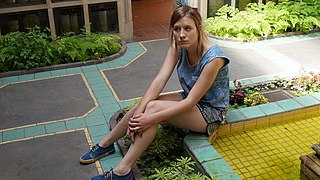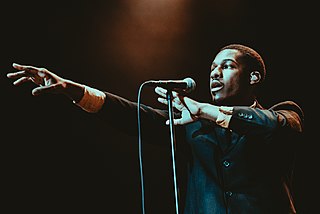A Quote by Sandra Brown
Rarely does a complete idea come to me. I basically start with just a small scene or a snatch of dialogue and force myself to write and to keep writing. Sometimes it becomes a book.
Related Quotes
Any story has a beginning, middle, and end, of course, but the question is, where do you start it exactly? It's about a guy who is murdered in a fistfight, but how does it evolve and what does it mean? That's what I discovered scene by scene, and this innovation of coming in as a first-person narrator was a complete surprise to me. It just happened.
Usually when I finish the draft of a book, I'm sure I'll never write another one. I'm just that tired and sick of myself. But then another idea starts percolating. It usually begins with the narrator's name, then some idea that intrigues me about her life or situation. I try to ignore it as long as I can, because I know when I start writing, I'll be right back into it, every single day. But eventually, I just have to. It's a compulsion!
I think any start has to be a false start because really there’s no way to start. You just have to force yourself to sit down and turn off the quality censor. And you have to keep the censor off, or you start second-guessing every other sentence. Sometimes the suspicion of a possible false start comes through, and you have to suppress it to keep writing. But it gets more persistent. And the moment you know it’s really a false start is when you start … it’s hard to put into words.
The secret to writing is just to write. Write every day. Never stop writing. Write on every surface you see; write on people on the street. When the cops come to arrest you, write on the cops. Write on the police car. Write on the judge. I'm in jail forever now, and the prison cell walls are completely covered with my writing, and I keep writing on the writing I wrote. That's my method.
Well, first you have to love writing. A lot of authors love having written. But I enjoy the actual writing. Beside that, I think the main reason I can be so prolific is the huge amount of planning I do before I start to write. I do a very complete, chapter-by-chapter outline of every book I write. When I sit down to write, I already know everything that's going to happen in the book. This means I've done all the important thinking, and I can relax and enjoy the writing. I could never write so many books if I didn't outline them first.
Freud believed that our dreams sometimes recapitulate a speech, a comment we've heard or something that we've read. I always had compositions in my dreams. They would be a joke, a piece of a novel, a witticism or a piece of dialogue from a play, and I would dream them. I would actually express them line by line in the dream. Sometimes after waking up I would remember a snatch or two and write them down. There's something in me that just wants to create dialogue.
Sometimes I find it tiresome to write actions and describe the scene in a very intricate way so that every crew member understands where we are going - that I can find a little bit long and tiresome. But dialogue is just all my life. There's no way I could ever be challenged, not challenged, but I'm always so happy to write dialogue.


































